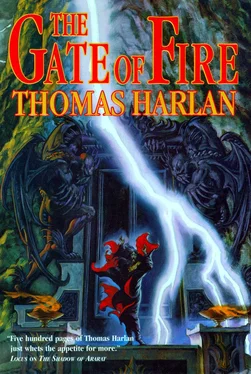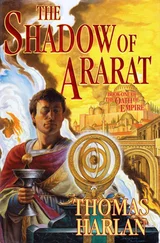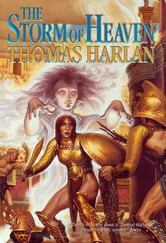Thomas Harlan - The Gate of fire
Здесь есть возможность читать онлайн «Thomas Harlan - The Gate of fire» весь текст электронной книги совершенно бесплатно (целиком полную версию без сокращений). В некоторых случаях можно слушать аудио, скачать через торрент в формате fb2 и присутствует краткое содержание. Жанр: Фэнтези, на английском языке. Описание произведения, (предисловие) а так же отзывы посетителей доступны на портале библиотеки ЛибКат.
- Название:The Gate of fire
- Автор:
- Жанр:
- Год:неизвестен
- ISBN:нет данных
- Рейтинг книги:4 / 5. Голосов: 1
-
Избранное:Добавить в избранное
- Отзывы:
-
Ваша оценка:
- 80
- 1
- 2
- 3
- 4
- 5
The Gate of fire: краткое содержание, описание и аннотация
Предлагаем к чтению аннотацию, описание, краткое содержание или предисловие (зависит от того, что написал сам автор книги «The Gate of fire»). Если вы не нашли необходимую информацию о книге — напишите в комментариях, мы постараемся отыскать её.
The Gate of fire — читать онлайн бесплатно полную книгу (весь текст) целиком
Ниже представлен текст книги, разбитый по страницам. Система сохранения места последней прочитанной страницы, позволяет с удобством читать онлайн бесплатно книгу «The Gate of fire», без необходимости каждый раз заново искать на чём Вы остановились. Поставьте закладку, и сможете в любой момент перейти на страницу, на которой закончили чтение.
Интервал:
Закладка:
His voice shook, but he continued. "I will follow that system of regimen which, according to my ability and judgment, I consider for the benefit of my patients, and abstain from whatever is deleterious and mischievous. I will give no deadly medicine to anyone if asked, nor suggest any such counsel. With purity and with holiness I will pass my life and practice my Art. Into whatever houses I enter, I will go into them for the benefit of the sick and no other reason. Whatever, in connection with my professional practice or not, in connection with it, I see or hear, in the lives of men, which ought not to be spoken of abroad, I will not divulge, as reckoning that all such should be kept secret. While I continue to keep this Oath unviolated, may it be granted to me to enjoy life and the practice of the Art, respected by all men, in all times! But should I trespass and violate this Oath, may the reverse be my lot!"
The words seemed an anchor, a lifeline across these black days to the man who had stood in front of the boatshed in Ostia. Maxian smoothed back his hair nervously. The words had been cut into a great slab of fine Cosian marble in the foyer of the temple. It was the first task of each initiate to commit them to memory. He knew what he should do, but it would be dangerous, and it might even cost him his life. But what then of my oath to myself and to the brothers of my craft? What of Krista? What of my brothers?
He pushed away from the stone and the friendly calming vibration that suffused it. If he was the man he thought himself to be, he would betake himself back to Rome and surrender himself to the mercy of his Imperial brother. Maxian grinned to himself. The Engine, at least, would be a worthy gift to Galen!
"Maxian! Lord Maxian!"
The Prince looked up, shading his eyes with a hand. There was a scrabbling sound, and rocks tumbled down from above. He craned his neck and stepped out into the center of the grotto. One of the Walach boys-Anatol?-was perched on the top of a pinnacle.
"Down here!" Maxian waved his arms, drawing the boy's attention. "What is it?"
"They've found it, my lord! Lord Gaius says that he's found it!" Anatol's voice echoed from the mossy stones and was quickly swallowed up by the wilderness of thorn bush and ivy.
"Found what?" Maxian tried not to let his impatience show.
"The text you sought, my lord. The original notes for the Oath!"
Maxian raised both eyebrows in surprise and then he jogged across the grotto to the hidden trail.
– |"You've read this, of course." The Prince held up a thin sheet of papyrus, old and yellowed, with crumbling edges, to the light from one of the library windows. Unlike most of the windows in the villa, these were covered with small squares of clear glass set into a metal frame. They allowed light even when the day was cold or blustery, unlike most of the others, which were covered with wooden shutters or lattices. Maxian frowned; the writing on the paper was in a weak, spidery hand, and the ink, over the centuries, had faded. "Did you make a translation?"
Gaius Julius nodded and pushed a sheet of fresh parchment, almost white, across the surface of the plank table they had dragged in from the stables. Alexandros was sitting next to him, perched on the back of a chair, looking for all the world like a blond crow. Maxian picked up the sheet and settled in the chair, comparing the original-which was in Greek-and Gaius' translation, which was in his simple, straightforward Latin. Maxian had once chaffed the old Roman about his writing style in comparison to the noble orators, to which Gaius had replied, in an arch tone, that "Cicero can stuff himself."
Maxian's face turned grave as he read the text of the paper. In the original there had been emendations and notes inked in along the margins. Gaius had listed these as well on a second sheet, with circled numbers indicating where each one had appeared in the original. The Prince put the translation aside once he had read it through and laid the old scroll carefully down on the table. He pinched his nose and closed his eyes for a moment, then drew a box around the papyrus with his fingertip.
Gaius Julius and Alexandros shared a glance, shrugged, then turned to watch the Prince.
Maxian rested his hands on the tabletop, palms down, on either side of the invisible box. His attention turned inward-this much was clear-and a low, faint hum rose up. Motes of dust sparkled in the air, glittering in the falling rays of the sun. On the tabletop, the scroll shifted by itself, making a faint rattle. The Prince's head slumped low on his chest. Dust spun through the air, blown on an invisible wind. Gaius Julius inched back, feeling a draft on his neck. The motes whirled through the sunstreaked air, collecting within the box. The scroll lifted into the air, no more than the width of a man's small fingertip. Dust rushed to it, filling the cracked and broken edges, restoring-suddenly-the yellowed surface to a delicate cream. The ink congealed on the page, becoming dark and clear.
Alexandros whistled in surprise. The dust continued to fill in the page, but it began to form in the air beside the sheet with dizzying speed. A second page of papyrus spun out of gossamer crept through the air. It built mote by mote, atom of dust by atom. Diagrams and signs in unknown tongues filled the sheet, the ink seemingly welling up out of the papyrus. The edge of this new sheet composed itself with a crisp snap. Then another began to build, above the first.
"Hades… it's a whole bloody book!" Gaius Julius fell silent, watching the drawn, pale face of the Prince. Pages continued to build out of the thin air, filled with the spidery crabbed writing and a wild confusion of diagrams, gruesome pictures, and astronomical patterns. The hum rose in pitch until it shook the table legs, making them dance, and set Gaius' teeth on edge. Sunlight fled, and evening came.
At last, when nearly a hundred sheets had appeared, the Prince looked up, his face haggard. "It is done." He raised his hands from the tabletop, and the hundred sheets, stacked in the air, collapsed with a soft flutter to the planks. The room was unnaturally clean, every surface shining and dust free. Maxian opened his eyes and looked around, lost for a moment.
Alexandros circled the table and, very gently, touched the edge of the manuscript. The papyrus rustled. "It's real…" The Macedonian smiled in delight and withdrew his finger.
"Yes," the Prince said in a weary voice. "Whole and complete in sentence, word, and verse, as it was on the first day it was written down at the command of Emperor Augustus."
Gaius Julius made a clicking sound with his teeth. He pointed with his chin at the book.
"This is what you call similarity? Like these lattices within the Oath?"
Maxian nodded and leafed through the sheets of paper. He found the original page, now gleaming white, and turned over the book to expose it. The emendations stood out in slightly different colored ink. "This book was done as a whole, by one person working at a furious pace, at one time. That man-his name was Khamun, a Greek-speaking Egyptian-was under deadly pressure. He held the whole of this document in his mind as he wrote each page. He was a wizard, even as Abdmachus was, and the strength of his vision impressed itself upon the whole. It was a simple thing to call it forth from the one surviving page."
At the mention of the Egyptian's name, Gaius Julius had made a face and was now lost in thought. Maxian tapped on the tabletop, drawing his attention. "Is this man known to you? He lived in your time."
"Yes…" Gaius Julius seemed hesitant, but then he forged ahead. "During my time in Egypt, there was trouble among the Royal House of Ptolemy. On one side stood the boy-prince, and on the other, his sister. Each desired nothing so much as the other's death-I remember that the boy had taken a sorcerer into his employ. He made some trouble for the Queen, but my soldiers sorted it out."
Читать дальшеИнтервал:
Закладка:
Похожие книги на «The Gate of fire»
Представляем Вашему вниманию похожие книги на «The Gate of fire» списком для выбора. Мы отобрали схожую по названию и смыслу литературу в надежде предоставить читателям больше вариантов отыскать новые, интересные, ещё непрочитанные произведения.
Обсуждение, отзывы о книге «The Gate of fire» и просто собственные мнения читателей. Оставьте ваши комментарии, напишите, что Вы думаете о произведении, его смысле или главных героях. Укажите что конкретно понравилось, а что нет, и почему Вы так считаете.











